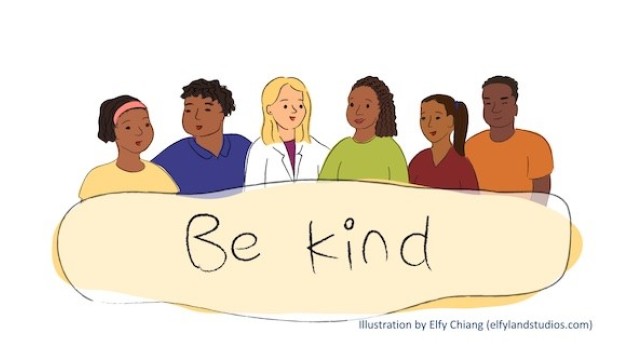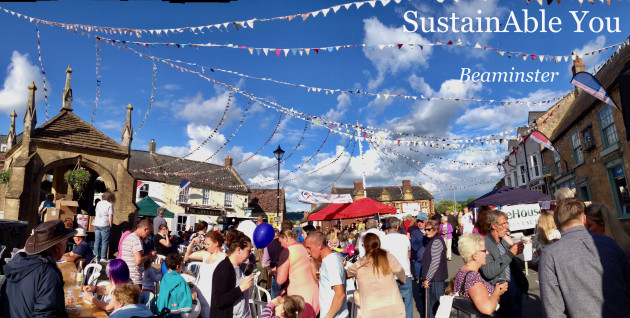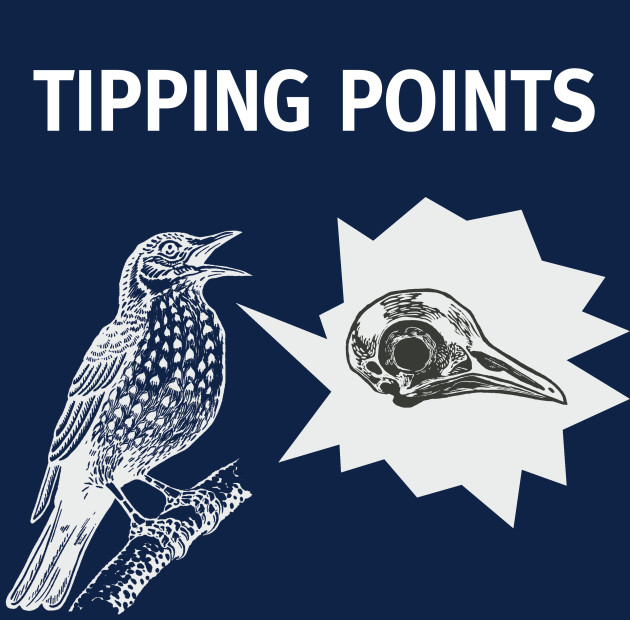Introducing the recipients of the 2021 Rapid Response Seed Fund – this fund was created to support public engagement with research during social distancing. We’re thrilled to be supporting a wide range of public engagement activities, find out more about the different projects below.
Invisible Warrior - led by Linda van Keimpema, Josefin Ahmstroem and Louisa
 Sickle cell disease is a genetic disease affecting red blood cells. Although it’s the fastest growing genetic condition in the UK, awareness of this disease is limited. This engagement project aims to increase the understanding of sickle cell disease and to emphasise its effects on the mental health of patients and their support networks. Working with sickle cell patient Louisa, the project title “Invisible Warrior” was chosen to highlight the severe pain and invisible daily battles often faced by sufferers. They are warriors.
Sickle cell disease is a genetic disease affecting red blood cells. Although it’s the fastest growing genetic condition in the UK, awareness of this disease is limited. This engagement project aims to increase the understanding of sickle cell disease and to emphasise its effects on the mental health of patients and their support networks. Working with sickle cell patient Louisa, the project title “Invisible Warrior” was chosen to highlight the severe pain and invisible daily battles often faced by sufferers. They are warriors.
Our team digitally visits local schools and organises workshops for patients and their friends and family. Our workshops are built around Louisa’s story of growing up and living with sickle cell disease. Working with a science illustrator, we have visualised Louisa's story in this video. This is shown during the workshops and forms the starting point of discussions around mental health and invisible disabilities. During our school visits, haematology lecturer Dr Josefin Ahnstroem shares her insights into the life of a scientist and the importance of diversity in science. We end the school visit with a creative activity to reflect on invisible disabilities. These activity sheets are then collated and shared via our project webpage.
Our workshops for patients, friends and family aim to collect more stories to share during the school visits and with wider audiences to increase the awareness of sickle cell disease. For more information visit our website, contact us on invisiblewarrior.scd@imperial.ac.uk or follow us on Twitter and Instagram.
SustainAbleYou led by Dr Poppy Lakeman Fraser, Miriam Aczel and Karen Makuch
 Individuals are stretched to their physical and mental limit with lockdown life, businesses are suffering, and the pandemic is generating huge volumes of single-use rubbish. In the face of this adversity, people have come together to help their friends and neighbours, businesses are reinventing themselves, carbon dioxide emissions have plummeted and appreciation of nature from our daily walks is at an all-time high.
Individuals are stretched to their physical and mental limit with lockdown life, businesses are suffering, and the pandemic is generating huge volumes of single-use rubbish. In the face of this adversity, people have come together to help their friends and neighbours, businesses are reinventing themselves, carbon dioxide emissions have plummeted and appreciation of nature from our daily walks is at an all-time high.
As restrictions lift, we are at a crossroads and are provided with a unique opportunity to capture those positive elements that people have cherished about a slower-paced, more connected, greener life—so called #CovidKeepers. In doing so, we will build on our satisfaction from life, elevate thriving local livelihoods and nurture our enjoyment of and care for the environment. Our local government is taking steps in this direction, but to bring about meaningful, long lasting change, a people-powered approach is also necessary.
We need people from all ages and walks of life to be informed, excited and equipped to be heard and to realise their visions for change. We plan to ignite a revolution in one rural town (Beaminster, Dorset), to investigate how individual (particularly youth) voices can bring about change and provide a blueprint for the expansion of this bottom-up approach across varied communities. SustainAbleYou will therefore connect young people with local residents, businesses and councils to find inspiring approaches where everyone is ABLE (including YOU) to take personal steps for a more fulfilling, greener and all-round SUSTAINABLE future.
Earthsong, led by Dr Robin Lamboll & Poets for the Planet
This November, the United Nations climate change conference COP26 is coming to Glasgow. To set the scene for this, Earthsong will bring together environmental researchers and poets from around the world, writing in their native language to bear witness to the need for change.
The poets will write in response to the work of scientists covering topics ranging from financing the green transition to renewable energy and nature-based solutions. The poets will ground this research in how they see the effects of climate change in their country or how their culture has responded to these forces. Live performances will take place at Imperial College London’s Great Exhibition Road Festival in October and will be streamed online during COP26 itself. This will hopefully assist the scientists in translating research into policy, as well as literally translating research into different languages. The co-organisers of the event, Poets for the Planet, will collaborate with other poetry groups internationally to have a series of other poetry events following on from this as timezones allow.
Tipping Points led by Pete Knapp
 The new podcast called ‘Tipping Points’ includes 20-40 minute interviews with UK-based scientists from a variety of disciplines (e.g. astrophysics, cancer research, ecology) with the main aim of finding out what made them step out of their comfort zone to become environmental activists. How have they coped with the realisation of what’s been happening, how many of the big problems seem to be connected, and the apocalyptic forecasts? How have they dealt with difficult conversations with family and friends, and how have they managed their own lifestyles in a world where being sustainable is virtually impossible?
The new podcast called ‘Tipping Points’ includes 20-40 minute interviews with UK-based scientists from a variety of disciplines (e.g. astrophysics, cancer research, ecology) with the main aim of finding out what made them step out of their comfort zone to become environmental activists. How have they coped with the realisation of what’s been happening, how many of the big problems seem to be connected, and the apocalyptic forecasts? How have they dealt with difficult conversations with family and friends, and how have they managed their own lifestyles in a world where being sustainable is virtually impossible?
This podcast is Pete’s first venture as an interviewer and editor, after the success of series one he will be using the funding to upgrade his recording and editing setup. This second series will focus on people from other areas of work who have joined Extinction Rebellion, such as lawyers, pilots, teachers, and doctors, and it will include questions sent in from the public. Stay tuned!
Wellbeing of Women - led by the Women's Health Research Centre and local residents
The Women’s Health Research Centre acts as a central hub for reproductive health and childbirth research. There is an increasing need to consistently tether research to the priorities and experience of the women and families in the community it serves.
We want to work with women and families to identify health and wellbeing priorities. We think that the formation of a community-based partnership group to work in ongoing collaboration with the Centre will enrich and positively impact research participation including the conduct, content, and outcomes of health research.
Contact Alison Perry to find out more.
My Artery: understanding blood pressure measurements - led by the National Heart and Lung Institute
My Artery is a public engagement project that will facilitate a two-way dialogue about blood pressure between individual members of the public and clinical researcher, Anenta Ramakrishnan. The key objectives are:
- Communicate knowledge and health promotion advice on blood pressure to members of the public
- Explore why ‘one size does not fit all’ for ‘normal’ values of blood pressure and treatments for different groups in the population
- Share the researcher’s current study on blood pressure measurement with members of the public.
This will be achieved through a series of workshops with those who are under-represented in blood pressure research including young people, adults of Black ethnicity and women before, during and after pregnancy.
Contact Anenta Ramakrishnan to find out more.
Infection Arcade - led by the Department of Infectious Diseases
The Infection Arcade features a series of hands-on games to explore various aspects of infectious disease research. This has been brought to Imperial Lates in the past but now, Dr Esmita Charani and her team and seeking to adapt the games so they can be played digitally and are revising the focus in light of the COVID-19 pandemic. The games include:
- Build a Bug
- Dicing with Death Snakes and Ladders
- Antibiotic Arms Race
These games will be embedded into a schools outreach session in which students will be able to ask researchers their questions.